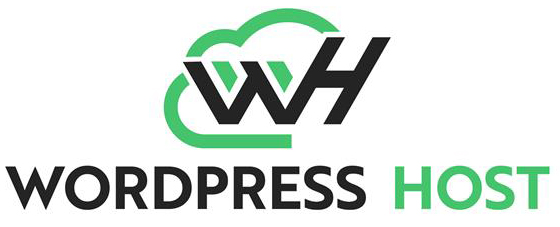In the vast landscape of website hosting, where performance and reliability reign supreme, one solution stands out like a beacon of innovation and efficiency: the WordPress Cloud Server. Imagine a digital realm where your website’s scalability, security, and savings are not mere aspirations but tangible realities. This blog post is your gateway to understanding how this powerhouse of technology can transform your online presence into a force to be reckoned with.
Dive into the realm of unparalleled possibilities as we unravel the secrets behind harnessing the WordPress Cloud Server for your digital endeavors. From seamless scalability that adapts to your growing needs to ironclad security measures that safeguard your precious data, and let’s not forget the icing on the cake – significant cost savings that make every penny count. Buckle up as we embark on a journey through the virtual skies, exploring the boundless potential that the WordPress Cloud Server has to offer.
Understanding WordPress Cloud Server: An Overview
Before we delve into the nitty-gritty details of setting up and optimizing your WordPress Cloud Server, let’s take a moment to understand what it actually is. In simple terms, a WordPress Cloud Server is a hosting solution that combines the power of cloud computing with the flexibility and user-friendly interface of WordPress.
Unlike traditional hosting options, where your website is hosted on a single physical server, a cloud server utilizes multiple interconnected servers. This distributed architecture ensures that your website can handle high traffic volumes without experiencing any downtime or performance issues.
One of the key advantages of using a WordPress Cloud Server is its scalability. With traditional hosting, you may need to upgrade to a more powerful server as your website grows. However, with a cloud server, you can easily scale up or down based on your needs. This means that whether you’re experiencing a sudden surge in traffic or expecting steady growth over time, your website can effortlessly adapt to meet the demand.
Security Measures to Fortify Your Website
When it comes to online security, there’s no room for compromise. Thankfully, WordPress Cloud Servers offer robust security measures to protect your website from potential threats.
First and foremost, regular backups are essential for safeguarding your data. With a WordPress Cloud Server, you can automate this process and ensure that your files and databases are backed up regularly.
In addition to backups, implementing SSL certificates is crucial for securing sensitive information transmitted between your website and its visitors. SSL certificates encrypt data during transmission, making it virtually impossible for hackers to intercept or decipher.
Furthermore, many cloud server providers offer advanced security features such as firewalls and intrusion detection systems (IDS). These tools monitor network traffic and actively block any suspicious activity before it can harm your website.
Setting Up Your WordPress Cloud Server
Now that you understand the benefits and security measures associated with a WordPress Cloud Server, it’s time to set up your own. The process may vary slightly depending on your chosen hosting provider, but the general steps remain the same.
First, you’ll need to select a cloud server provider that offers WordPress hosting. Some popular options include Amazon Web Services (AWS), Google Cloud Platform (GCP), and Microsoft Azure. Once you’ve chosen a provider, you can create an account and access their cloud management console.
Within the console, you’ll typically find an option to launch a new instance or virtual machine. This is where you’ll configure your WordPress installation. You can choose the desired server specifications, such as CPU, RAM, and storage capacity.
After launching the instance, you’ll be provided with login credentials and instructions on how to access your new WordPress Cloud Server. From there, you can proceed with the installation of WordPress and any additional plugins or themes that suit your needs.
Optimizing Performance for Peak Efficiency
A fast-loading website is crucial for providing an optimal user experience and improving search engine rankings. Fortunately, there are several ways to optimize the performance of your WordPress Cloud Server.
Firstly, caching can significantly improve page load times by storing frequently accessed data in temporary storage. By implementing a caching plugin like WP Rocket or W3 Total Cache, you can reduce server response times and deliver content more efficiently to your visitors.
Additionally, optimizing images is essential for reducing file sizes without compromising quality. You can use plugins like Smush or EWWW Image Optimizer to automatically compress images as they are uploaded to your website.
Lastly, consider using a content delivery network (CDN) to distribute your website’s static files across multiple servers worldwide. This reduces latency and ensures that visitors from different geographical locations can access your content quickly.
Backing Up Your Data: Best Practices
No matter how secure your WordPress Cloud Server is, accidents can happen. That’s why implementing a robust backup strategy is essential for protecting your data.
Firstly, make sure to regularly back up both your website files and databases. This can usually be done through your cloud server provider’s management console or by using a dedicated backup plugin.
It’s also a good idea to store backups in multiple locations, such as on an external hard drive or in a cloud storage service like Dropbox or Google Drive. This ensures that even if one backup location becomes inaccessible, you’ll still have another copy of your data.
Monitoring and Managing Your Server
Once your WordPress Cloud Server is up and running, it’s important to monitor its performance and manage any potential issues that may arise.
Most cloud server providers offer monitoring tools that allow you to track metrics such as CPU usage, memory usage, and network traffic. By regularly reviewing these metrics, you can identify any bottlenecks or areas for improvement.
In addition to monitoring, it’s crucial to keep your server software up to date. This includes not only the WordPress core but also any themes or plugins you have installed. Outdated software can pose security risks and may lead to compatibility issues down the line.
Conclusion: Elevate Your Online Presence with WordPress Cloud Server
In conclusion, harnessing the power of a WordPress Cloud Server can revolutionize the way you manage and operate your website. With its unparalleled scalability, robust security measures, and cost-effectiveness, this hosting solution offers everything you need to elevate your online presence.
Whether you’re a small business owner looking to expand your digital footprint or an established enterprise seeking a reliable and efficient hosting solution, a WordPress Cloud Server is the answer. Embrace the future of web hosting and unlock the true potential of your website with WordPress Cloud Server.


